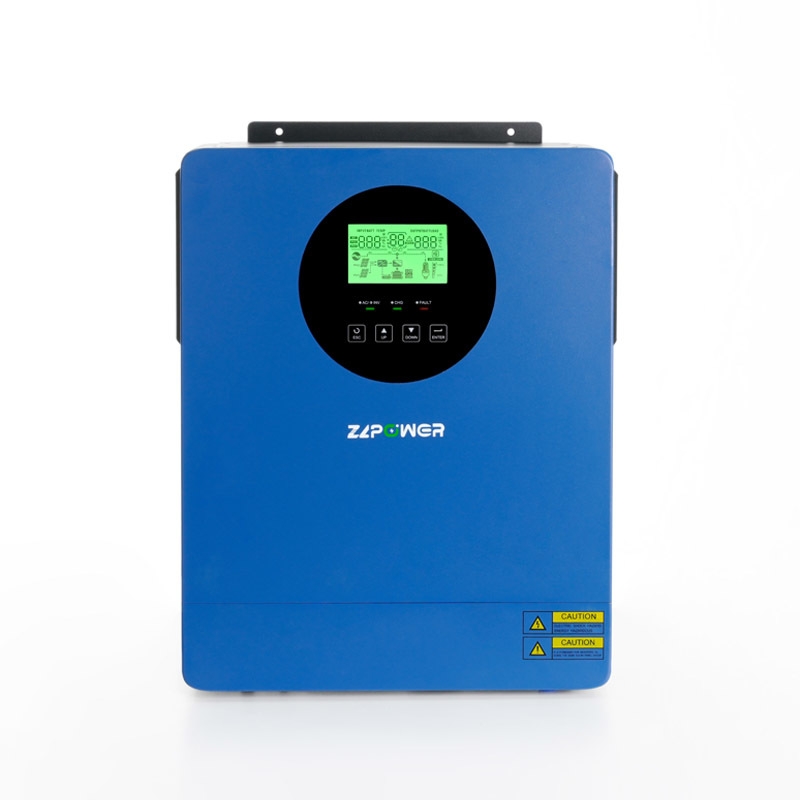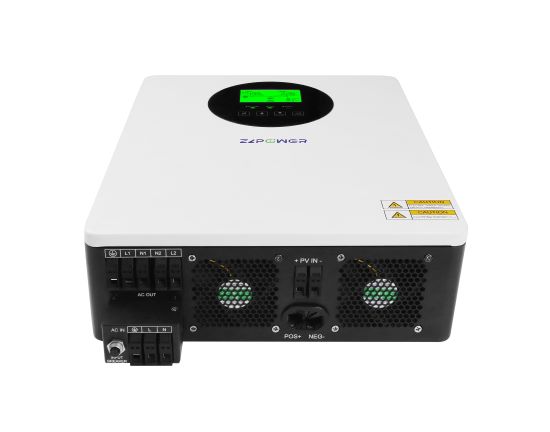

Hybrid solar inverters have become a critical component of off-grid and hybrid solar systems around the world. These smart devices enable seamless switching between solar panels, batteries, and grid input, optimizing energy flow for homes and businesses. But a recent wave of technical investigations has exposed a hidden risk: undocumented cellular modules embedded in certain off-grid hybrid inverters—especially those manufactured in China.
These built-in communication modules, often absent from official documentation, are raising serious security concerns. For businesses and infrastructure operators, understanding the implications of these hidden components is now more important than ever.
Modern inverters often come equipped with built-in communications hardware to enable remote monitoring, firmware updates, and energy management. This typically includes Wi-Fi, Bluetooth, and sometimes 4G LTE or GSM modules for cellular communication.
An undocumented module refers to any hardware component—usually a cellular or wireless module—not listed in the official product documentation, firmware description, or bill of materials. These are not disclosed to buyers or installers, and they often operate silently in the background.
Security researchers and teardown engineers have identified these modules through hardware disassembly, electromagnetic scans, and unexpected data packet transmission from supposedly offline systems. Some modules were found drawing power even when the inverter was "off-grid."
Unlike networked routers or computers that pass through corporate firewalls, inverters with hidden cellular radios can send and receive data without ever touching a controlled network. This presents a major blind spot for IT administrators.
Some modules were found capable of sending control signals. In the worst-case scenario, attackers could exploit undocumented modules to issue remote shutdown commands—creating operational disruptions for solar farms, homes, and even critical infrastructure.
The lack of transparency around these modules indicates a potential supply chain weakness. Without a clear and verifiable BOM (Bill of Materials), customers cannot be sure what’s really inside their inverters.
In late 2024, reports from multiple cybersecurity agencies in the U.S. and EU identified hidden cellular radios in a popular line of off-grid hybrid inverters. These components were not only undocumented but also actively transmitting telemetry to unknown IP addresses.
l The U.S. Department of Energy launched a probe into imported inverter models.
l Germany’s Federal Office for Information Security (BSI) issued advisories to review supply chains.
l Australia’s Clean Energy Regulator urged installers to confirm BOM compliance.
These developments have turned what was once a niche technical issue into a high-priority topic in global energy policy discussions.
.jpg)
"Undocumented radios in power electronics create a stealth backchannel that bypasses every traditional layer of digital defense. It’s like installing a modem you didn’t know you had."
Their 2024 teardown reports show specific inverter boards with isolated GSM modules, unlisted in manuals, capable of initiating outbound pings without user knowledge.
Always request a complete and verifiable Bill of Materials before purchasing inverters—especially for off-grid or hybrid models. Transparent documentation is your first line of defense.
If you discover unused SIM card slots or antennas, disable them via firmware (if accessible) or physically remove them. In critical environments, consider RF shielding or hardware-based isolation.
Before deployment, conduct teardown inspections and spectrum scans. Engage third-party labs if necessary to validate product claims.
Work with manufacturers that offer third-party cybersecurity certifications, such as IEC 62443 or NIST SP 800-82 compliance.

As concerns grow over hidden components in energy infrastructure, ZLPOWER stands out by offering full transparency in inverter manufacturing. Based in China with over 20 years of expertise, ZLPOWER specializes in hybrid solar inverters and energy storage systems designed with international safety and transparency standards.
Unlike anonymous OEMs, ZLPOWER ensures every inverter model comes with complete product documentation, a transparent bill of materials, and secure communication protocols. Our commitment to traceability, component-level testing, and customer-focused customization makes them a reliable partner for global energy integrators.
With a strong R&D backbone, CE/ROHS/ISO certifications, and exports to over 100 countries, ZLPOWER helps customers deploy clean energy systems without compromising on trust and safety.
A: An undocumented module is a built-in communication device not mentioned in the product documentation. It may operate without the user’s awareness, raising potential security concerns.
A: Because they can transmit or receive data without going through standard network firewalls, allowing unauthorized remote access or system control.
A: Perform hardware teardown, signal scanning, or consult third-party labs for a professional audit of the device.
A: Disable unknown ports, contact the supplier for confirmation, and consider switching to a trusted, certified brand like ZLPOWER.
A: ZLPOWER offers full BOM disclosure, meets CE/ROHS/ISO standards, and ensures every inverter is free from undocumented components.